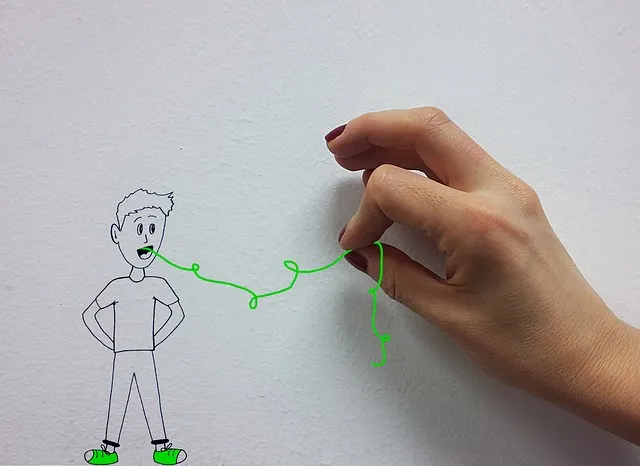Anxiety disorders, characterized by persistent fear and excessive worry, disrupt daily life. Kaiser psychologists diagnose conditions like Generalized Anxiety Disorder (GAD), Panic Disorder, and Obsessive-Compulsive Disorder (OCD) through comprehensive evaluations. They provide specialized care, including CBT, mindfulness practices, and depression counseling, offering both individual and group therapy sessions tailored to each patient's needs. Post-treatment support emphasizes building a robust support system and access to resources like trauma recovery services for long-term mental wellness.
Anxiety disorders affect millions, but help is available at specialized treatment centers. This comprehensive guide explores the various facets of anxiety disorder treatment, focusing on the crucial role of kaiser psychologists in delivering effective therapies. From understanding symptoms and diagnosis to therapeutic techniques like cognitive-behavioral therapy (CBT) and supportive services, this article offers insights into a holistic approach to recovery. Learn how building a lasting support system, including aftercare strategies, enhances long-term mental well-being.
- Understanding Anxiety Disorders: Symptoms and Diagnosis
- The Role of Kaiser Psychologist in Treatment
- Therapeutic Approaches: Cognitive-Behavioral Therapy (CBT) and More
- Supportive Services at the Treatment Center
- Recovery and Aftercare: Building a Lasting Support System
Understanding Anxiety Disorders: Symptoms and Diagnosis

Anxiety disorders are a group of mental health conditions characterized by excessive and persistent fear, anxiety, or concern. They can significantly impact an individual’s daily life, affecting their ability to work, socialize, and engage in everyday activities. Symptoms may include rapid heartbeat, sweating, trembling, difficulty breathing, and a sense of impending doom. People with anxiety disorders often experience a heightened state of arousal and worry, even when there is no apparent threat.
Diagnosis typically involves a comprehensive evaluation by a kaiser psychologist who will assess the severity and impact of symptoms on daily functioning. They may use standardized questionnaires or interviews to gauge anxiety levels and identify specific types of disorders, such as generalized anxiety disorder (GAD), panic disorder, social anxiety disorder, or obsessive-compulsive disorder (OCD). Early identification is crucial, and local kaiser psychologist appointments offer specialized care for individuals seeking relief from anxiety symptoms, including depression counseling at the clinic for co-occurring conditions. Couples therapy at kaiser can also benefit partners dealing with anxiety together.
The Role of Kaiser Psychologist in Treatment

At a Kaiser anxiety disorders treatment center, psychologists play a pivotal role in helping individuals navigate and overcome their mental health challenges. These professionals employ various evidence-based therapeutic approaches to address the root causes of anxiety, offering both individual and group therapy sessions tailored to each patient’s unique needs. The kaiser psychologist leverages techniques like cognitive behavioral therapy (CBT), mindfulness practices, and psychodynamic therapy to equip patients with effective coping strategies and resilience.
In addition to these specialized therapies, the kaiser intensive outpatient program provides structured mental health support for those requiring more comprehensive care. Through collaborative relationships with their patients, these psychologists foster a safe and supportive environment, encouraging open communication and personal growth. By integrating evidence-based practices with compassionate care, Kaiser psychologists empower individuals to manage anxiety effectively, improving their overall quality of life.
Therapeutic Approaches: Cognitive-Behavioral Therapy (CBT) and More

At our anxiety disorders treatment center, we employ a range of therapeutic approaches designed to help individuals manage and overcome their conditions effectively. One of the most widely recognized and successful methods is Cognitive-Behavioral Therapy (CBT). CBT helps patients identify and change negative thought patterns and behaviors that contribute to anxiety. Through structured sessions with our kaiser psychologist, individuals learn coping strategies, problem-solving skills, and relaxation techniques that can significantly reduce symptoms of anxiety disorders.
In addition to CBT, we offer mindfulness-based therapy as part of our comprehensive approach. This form of therapy teaches patients to stay present and focused on the here and now, rather than dwelling on past experiences or future worries. By integrating mindfulness practices into their daily lives, our clients develop a greater sense of calm and resilience. We also provide depression counseling tailored to address co-occurring depression that often accompanies anxiety disorders. Our dedicated team ensures personalized care, focusing on the unique needs of each individual seeking treatment at our kaiser clinic.
Supportive Services at the Treatment Center

At an anxiety disorders treatment center, supportive services play a crucial role in ensuring comprehensive care for patients. Beyond individual therapy sessions with kaiser psychologist specialists, many centers offer a range of additional resources tailored to address the unique needs of those struggling with anxiety. This can include group therapy sessions where individuals can connect and learn from one another, fostering a sense of community and mutual support.
Some centers also provide specialized services like kaiser language and cultural services, recognizing that effective treatment often considers an individual’s background and preferences. These services may offer therapy in various languages or incorporate culturally sensitive approaches to better serve a diverse patient population. Additionally, private practice psychologists associated with kaiser healthcare can offer flexible appointments, catering to individuals who prefer more personalized and discreet support throughout their journey towards recovery.
Recovery and Aftercare: Building a Lasting Support System

After completing a structured program at an anxiety disorders treatment center, the journey towards recovery doesn’t necessarily end. Building a robust support system is vital for maintaining progress and fostering long-term mental wellness. This includes leaning on loved ones, who play a crucial role in providing encouragement and accountability throughout the healing process. Many individuals find comfort in joining support groups, where they can connect with others facing similar challenges, sharing experiences and strategies for coping with anxiety disorders.
Kaiser psychologist and counseling services offer valuable resources for continuing care. The child psychology kaiser services, tailored for younger patients and their families, can help address specific needs while promoting healthy development. For those who have experienced trauma, a psychologist specializing in trauma recovery within the Kaiser network may be recommended to facilitate healing and rebuild resilience. Effective aftercare ensures individuals are equipped with tools to navigate future challenges and maintain their hard-earned progress.
Anxiety disorders can significantly impact one’s daily life, but with the right support, recovery is achievable. An anxiety disorders treatment center offers a comprehensive approach, combining psychological expertise from Kaiser psychologists with diverse therapeutic methods like Cognitive-Behavioral Therapy (CBT). Supportive services and aftercare programs play vital roles in fostering lasting recovery. By understanding symptoms, diagnosing effectively, and implementing evidence-based treatments, these centers empower individuals to manage their anxiety, regain control, and build a robust support system for a brighter future.






